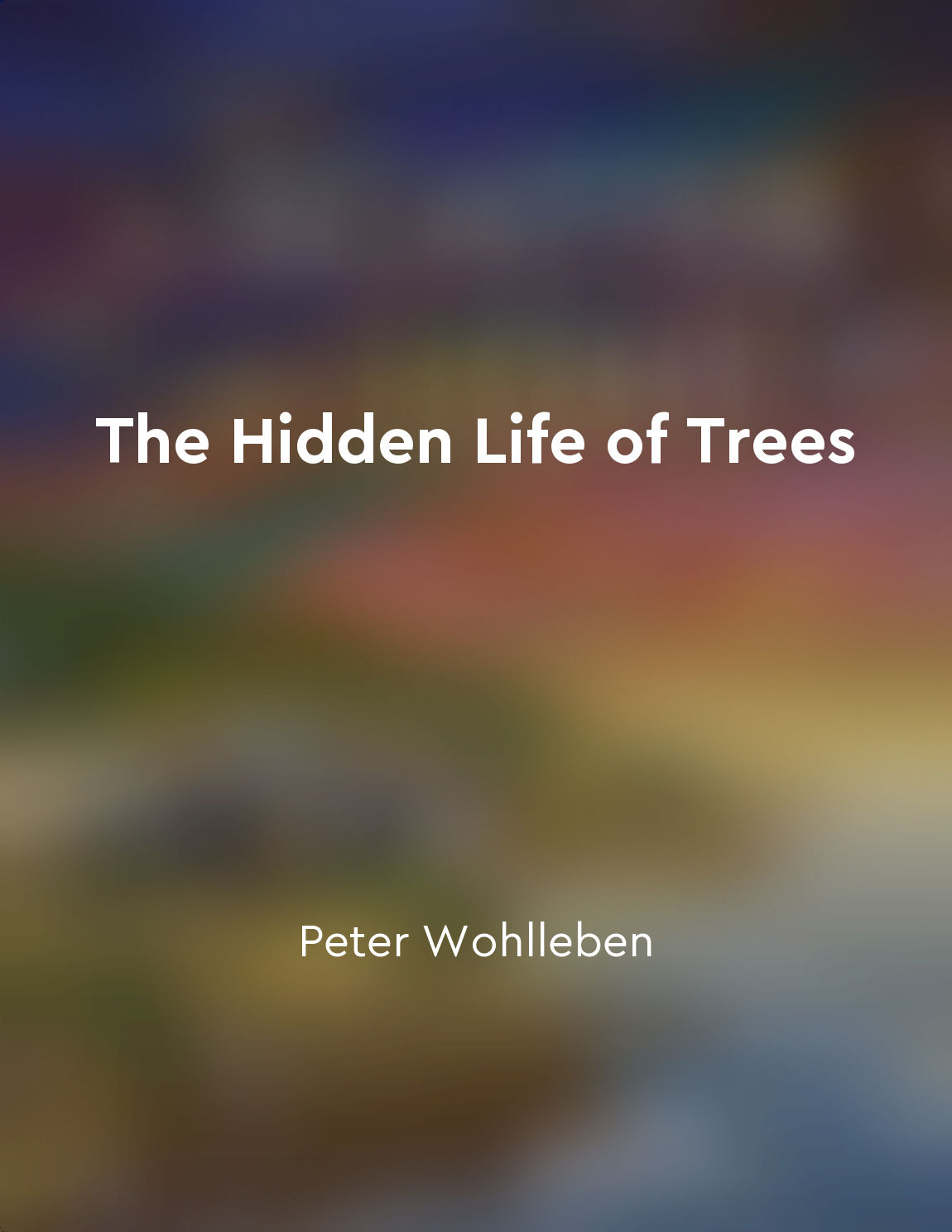Wolves play a crucial role in maintaining balance in the wilderness from "summary" of The Hidden Life of Wolves by Jim Dutcher,Jamie Dutcher,James Manfull
Wolves are often misunderstood creatures, feared by many for their ferocious reputation. However, what most people fail to realize is that wolves actually play a crucial role in maintaining balance in the wilderness. As apex predators, wolves help regulate the populations of other species, preventing overgrazing and ensuring the health of the ecosystem. By preying on herbivores such as elk and deer, wolves prevent these animals from decimating plant populations. This in turn allows other species to thrive, creating a diverse and healthy ecosystem. Without wolves, herbivore populations would skyrocket, leading to the overconsumption of vegetation and ultimately causing a ripple effect throughout the entire food chain. Additionally, wolves target the sick, weak, and old individuals within a population, thus strengthening the gene pool of their prey species. This natural selection process helps maintain the overall health and vitality of the animals they hunt. In essence, wolves act as nature's own regulators, ensuring that only the fittest individuals pass on their genes to future generations. Furthermore, the presence of wolves can have cascading effects on the entire ecosystem. For example, studies have shown that when wolves were reintroduced to Yellowstone National Park, their presence led to a decrease in the elk population, which in turn allowed the regeneration of aspen and willow trees. This had a domino effect on other species, such as songbirds and beavers, who rely on these trees for habitat.- Wolves are not just mere predators; they are essential components of a balanced and harmonious ecosystem. Their presence ensures the health and vitality of the wilderness, contributing to the overall well-being of all species within the ecosystem. It is only when we truly understand and appreciate the role of wolves in nature that we can begin to see the beauty and complexity of the natural world.
Similar Posts
Encountering wildlife in their habitat
To be out in the wilds and meet its creatures in their own habitat is a privilege. It is a world where the animals are free, wh...

They can sense approaching danger and warn others
Trees have a remarkable ability to communicate with each other. When danger is near, they can pick up on the approaching threat...
Future generations will be impacted by pesticide misuse
The misuse of pesticides is not a problem that affects only the present. It is a problem that will have lasting consequences fo...
Wolves are highly intelligent animals
Throughout their time spent living closely with wolves in the Sawtooth Mountains of Idaho, the Dutchers gained invaluable insig...

Trees communicate through a complex underground network
Imagine a forest, a bustling community of trees all standing tall and proud, soaking up the sunlight filtering through the leav...

Wolves were reintroduced into Yellowstone National Park
Wolves were reintroduced into Yellowstone National Park in the mid-1990s after being absent from the region for nearly 70 years...
Survival skills are passed down through generations
The wisdom of the ages flows through the veins of the wolf pack like a silent river, carrying with it the knowledge of survival...
Understanding ecosystems requires studying their key players
To understand ecosystems, we must first identify and study the key players within them. These key players are the organisms tha...
Battle between preservation and exploitation
The struggle between conservation and exploitation is a theme that runs throughout the narrative of 'The Golden Spruce'. The te...

The impact of climate change on animal populations
Climate change is messing with the animals. It’s confusing them. Throwing off their schedules. Forcing them to migrate to survi...

